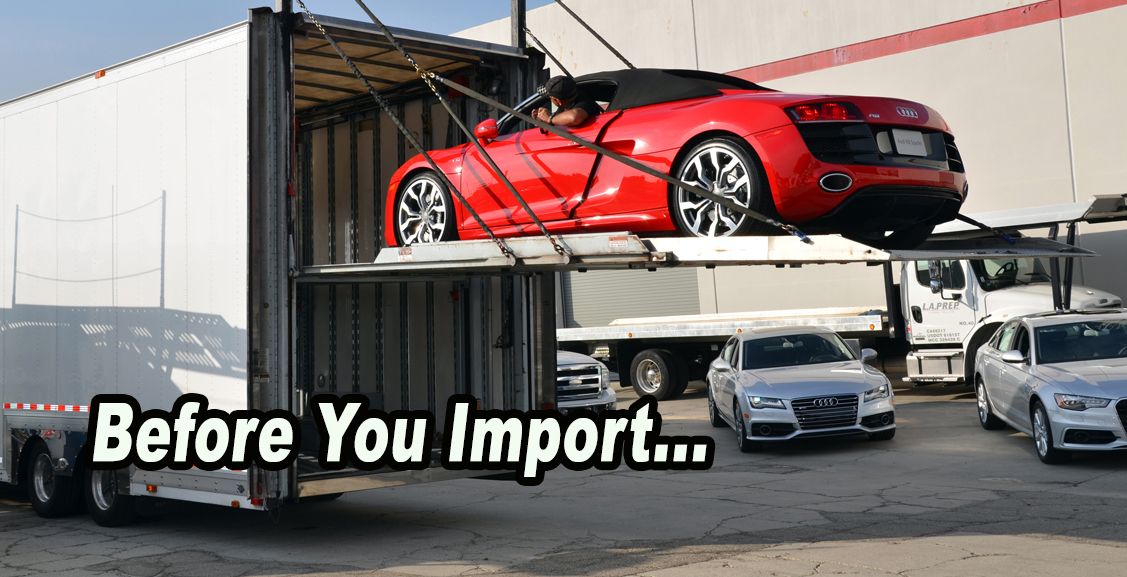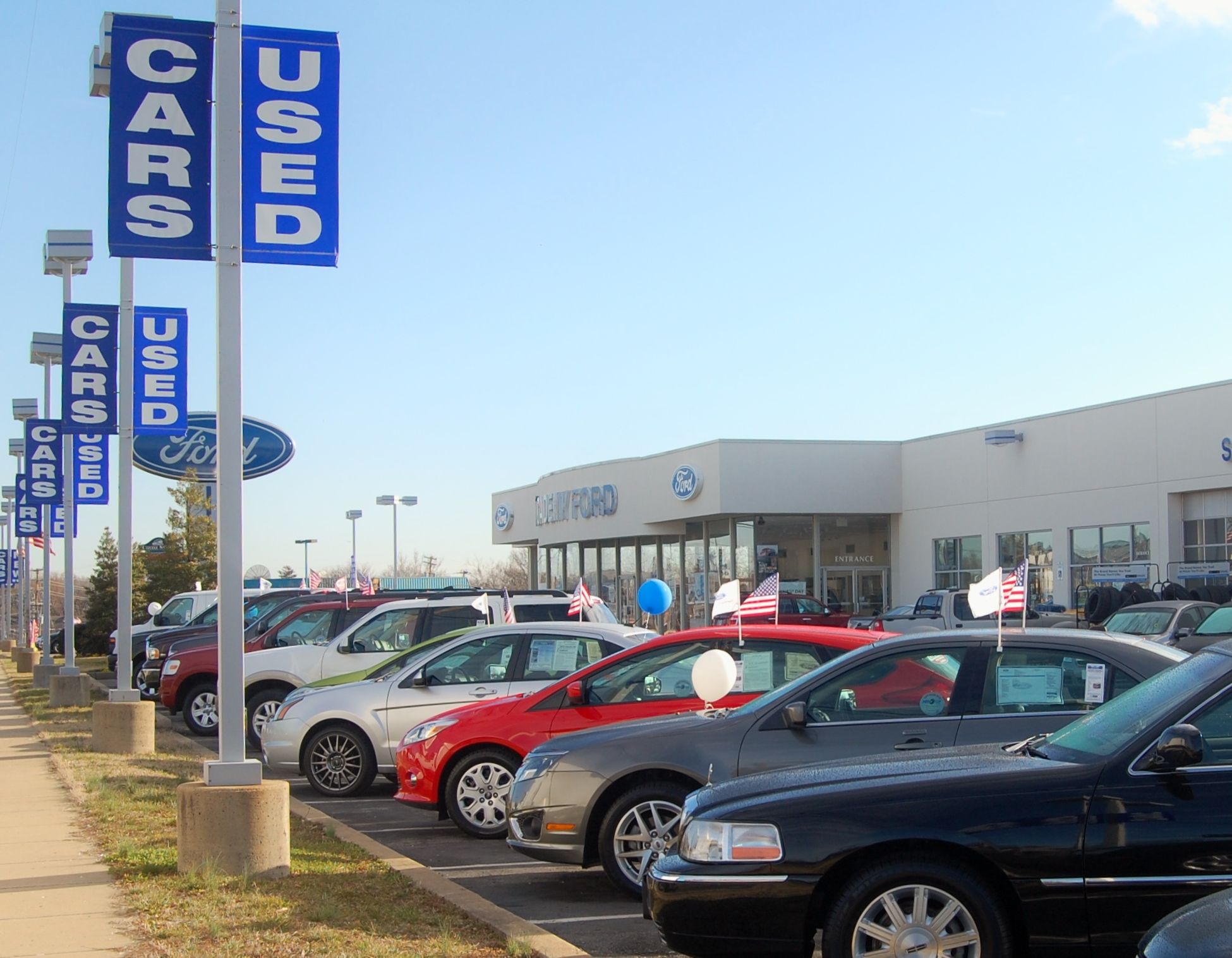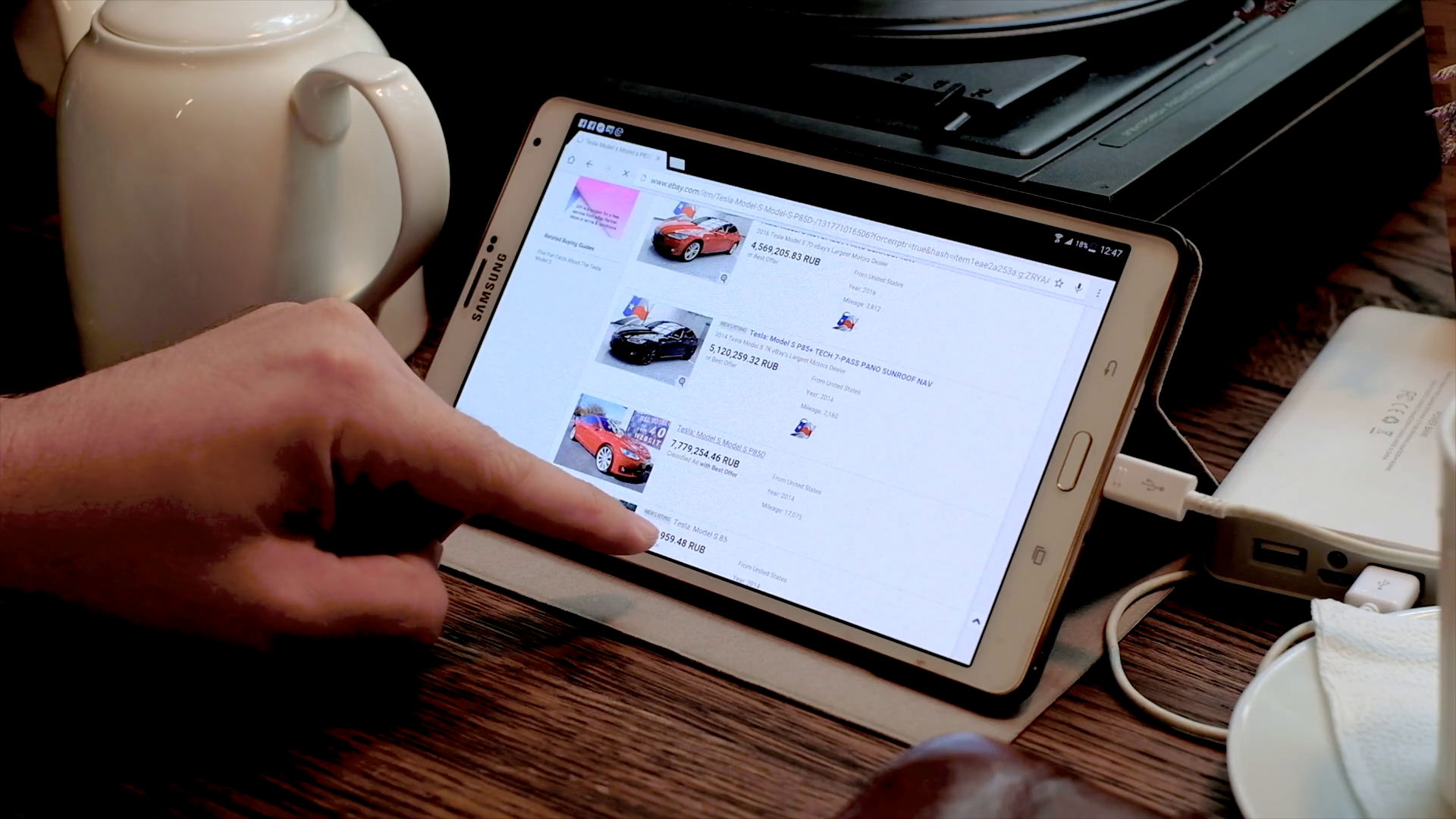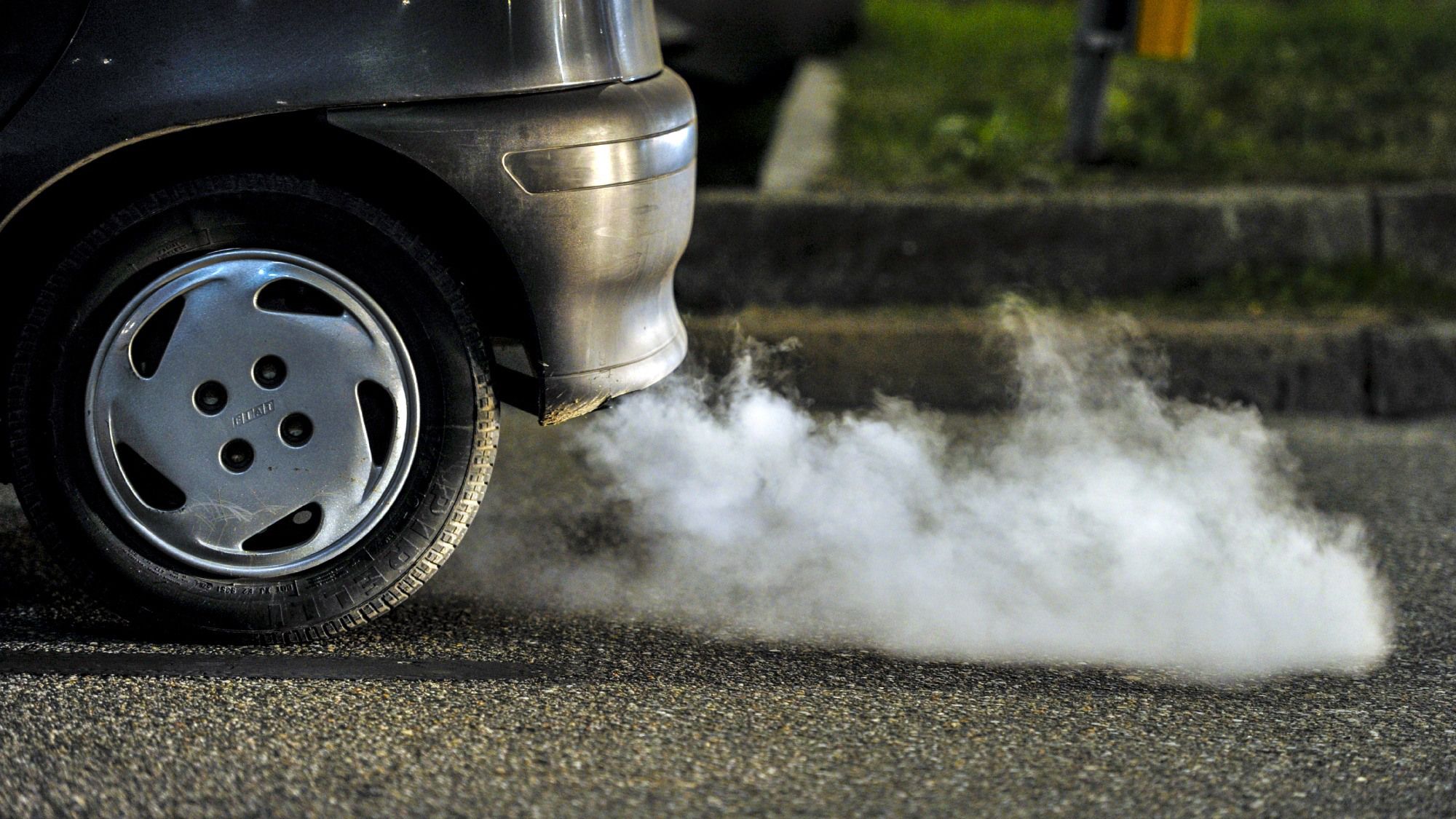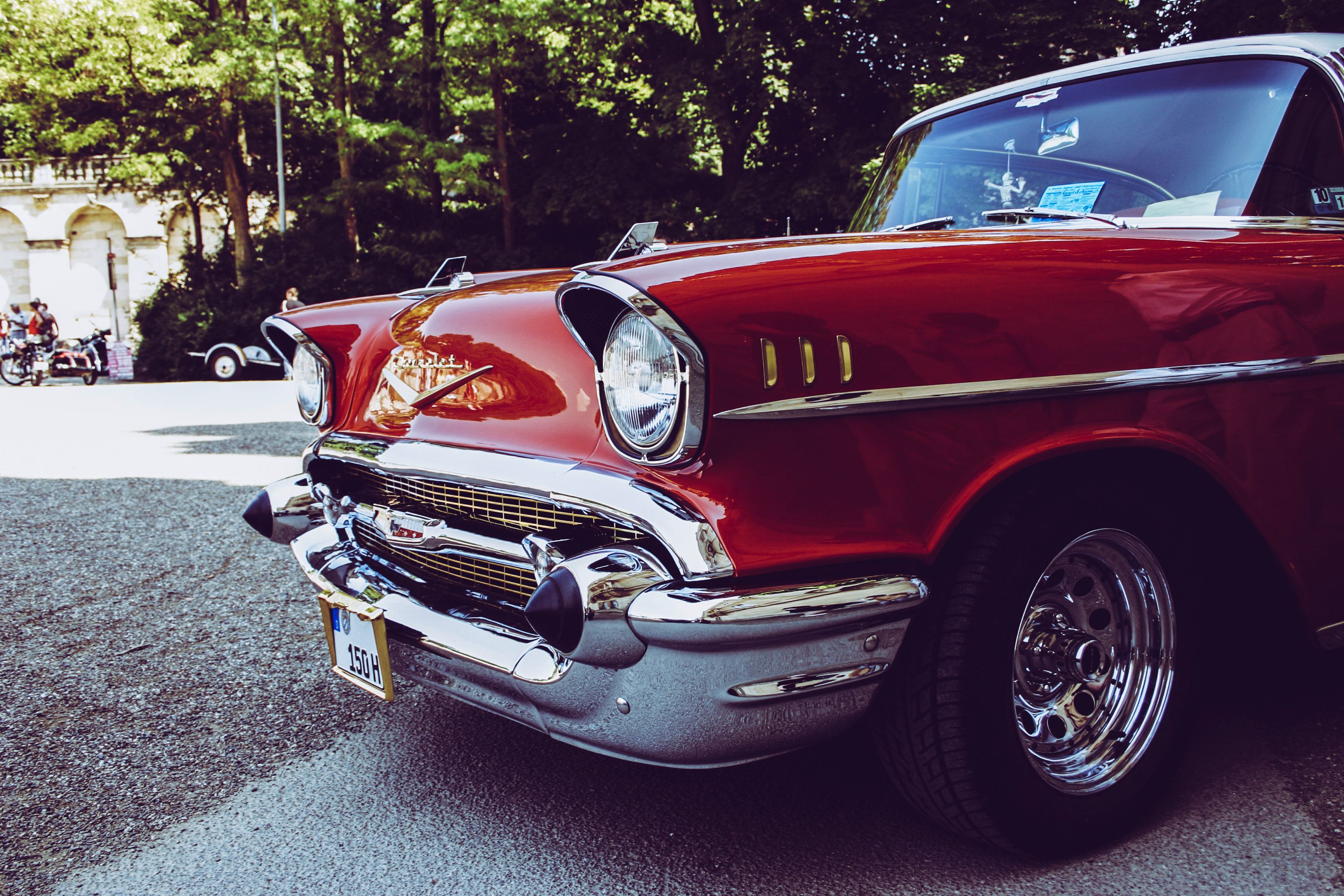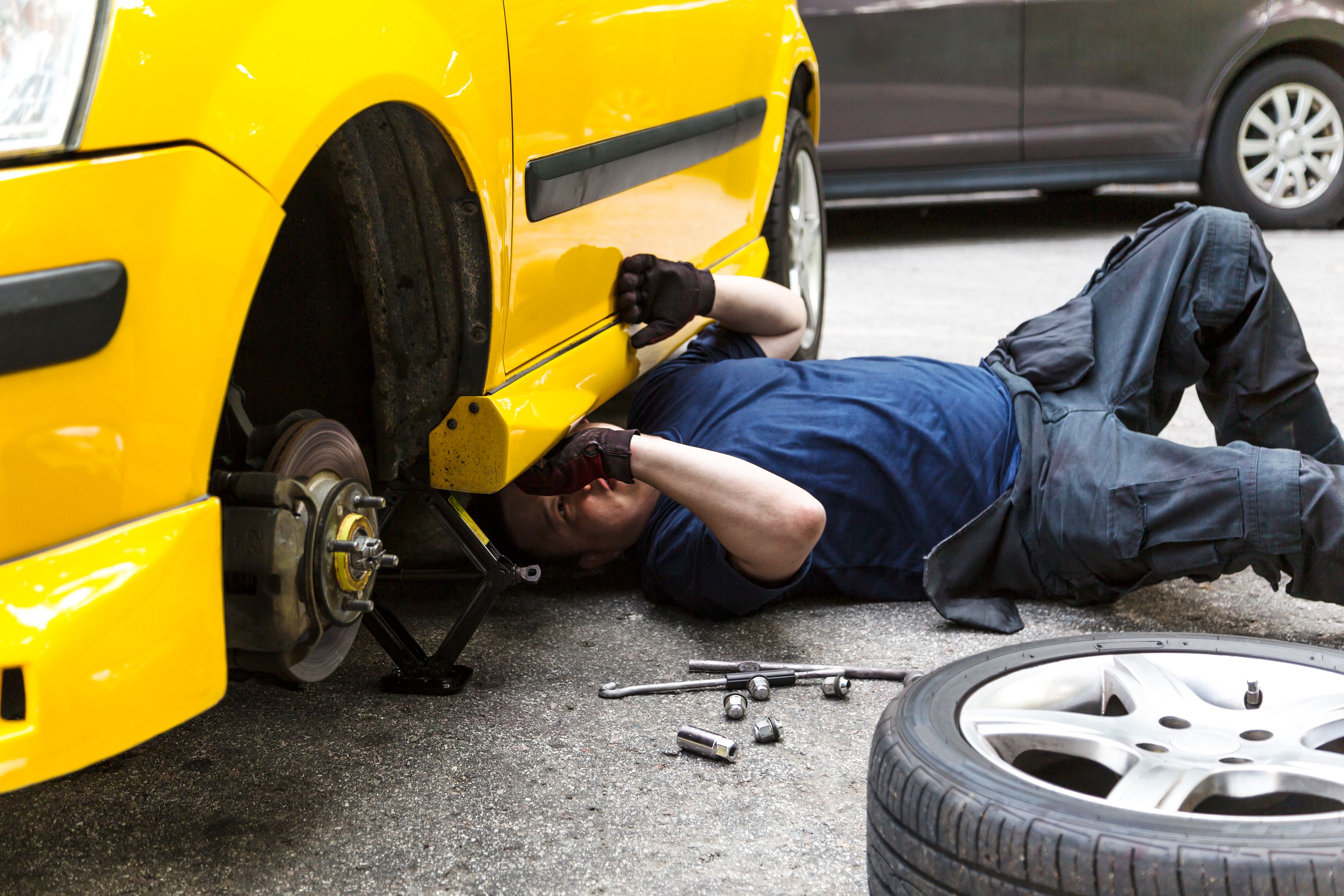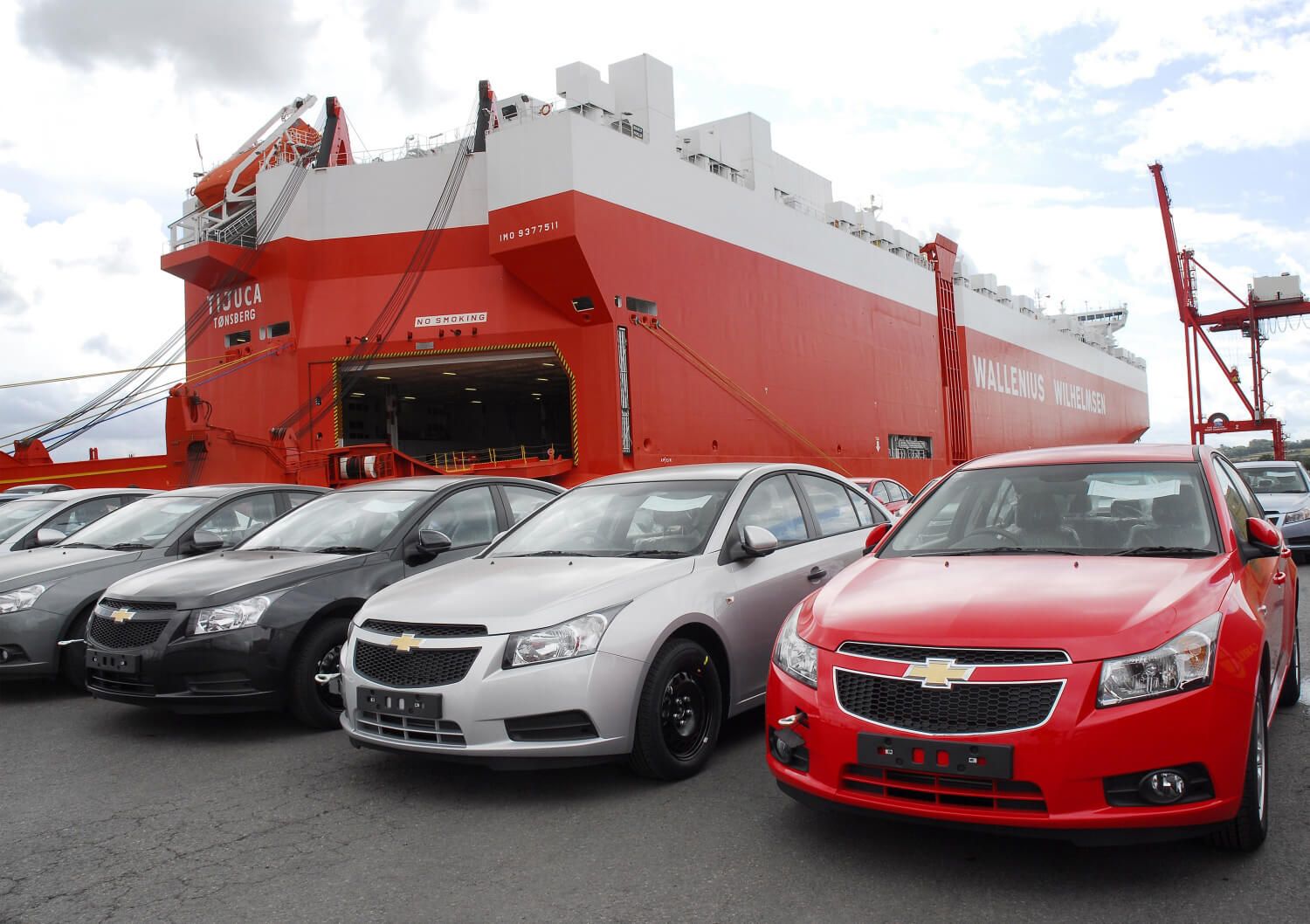Once upon a time, you would only ever see American cars being drive on American highways and streets. These days, however, imports from Japan and Europe are just as common a sight on US roads. By 2014 it was cars made by a foreign company - Japan’s Toyota - that were America’s best-selling motors, with 13.7% of the market share.
The divide between American and import cars is actually harder to define than it used to be. Japanese companies like Toyota and Honda along with South Korea’s Kia all have plants in the United States where parts are manufactured and vehicles are assembled. They may have been designed abroad, but they're very much made in America.
Although the gap has been somewhat bridged, buyers still need to be aware of difficulties and complications when they buy cars made by companies that are based outside of the States. There are extra costs involved and practicalities to take into consideration, and if you're buying your import car from outside the US, then you'll have a mountain of legal paperwork to complete before you can even think of getting behind the wheel.
If you're not into incurring unnecessary costs as well as pointless stress and regret, check out the list below for 17 things you need to remember before buying an imported car.
17 Try To Find The Car Locally
If you're thinking about buying an imported car, chances are that you already have a good idea which model and make you want to buy. In fact, you're probably already dreaming about driving it around the city, and can’t wait for this dream to come true.
You might assume that the only place to buy this car is from its country of origin, but that could be an expensive mistake.
As the market for import cars in the States has grown in recent years, you might be surprised at the number of imported cars you can find for sale in your local area. Always check what's available at local car dealerships or for sale privately before wasting a lot of money and time importing a vehicle yourself.
16 Do The Math
Buying an imported car involves some serious math. The choice is between buying an imported car that's already in the States–which can be more expensive than buying an American-made car–or buying a foreign-made car abroad where they're cheaper, but come part and parcel with all the extra costs involved in importing the vehicle into the States yourself.
As import cars become more common, you're likely to find that buying your new motor at home is much cheaper. However, if you’re after a luxury or a vintage model, you may have no choice but to look abroad. Just remember to always do the math. Compare and contrast prices and ultimately ask yourself if the extra cost is necessary. After all, your import may not be as cheap as you thought it was.
15 Research And Ensure That The Price Is Right
You might assume that it's cheaper to buy a German car from Germany, a Japanese car from Japan, a Korean car from Korea, and so on. However, European and Asian cars are driven everywhere, and it's worth looking at online prices from all over the world, in order to find the best deals on the car itself as well as the cost of importing the vehicle.
Thanks to the internet, it's easier than ever to compare prices on cars located in far-flung countries and to contact and negotiate with buyers, which is great news for collectors who have their eye on a rare car situated on the other side of the world.
Exercise some caution though, tales of conmen in this industry are far too common. Make sure that you are extra careful and always try to figure out why a price difference could be so large in some instances.
14 Factor In Conversion Calculation
If you're shopping abroad for your car, bear in mind that ticket price and import costs aren't the only sums you'll have to compute. The price of the vehicle you want to buy will actually fluctuate on a daily basis because of the conversion rate. For laymen, that's the value of the dollar against the value of the currency the car is being sold in, whether that's euros, yen, pounds or other.
It's worth following these currency fluctuations, as you can save yourself a significant amount of money by purchasing your imported car at the right time. In case you can’t really tell when the market rate is right, you can consult a forex exchange expert who will predict the market better than you can, thus saving you more money.
13 Follow The Rules
Once you've got your head around the numbers, you need to check out some of the car’s vital statistics to make sure you'll actually be able to drive it once it gets to the States. If you're buying your import from a dealership or a car lot in America, then those checks should already have been done. Nevertheless, always triple check.
It is also worth noting that some foreign made cars, especially older ones, might not comply with US laws on emissions.
There are Federal rules regarding vehicle emissions that car owners should adhere to, and California has passed its own laws on vehicle pollution. These laws are tougher than the rest of the country's. Failure to follow the rules means failure to drive your car.
12 Don’t Buy Blind
The test drive is usually one of the most important parts of the car-buying process. That moment when you get behind the wheel of your chosen vehicle is when you really know whether this is the car for you or not.
Buying a car from anywhere abroad pretty much rules out the possibility of a test drive, but you might be able to find a local dealer which sells a similar car or at least a motor made by the same company.
If all else fails, check out consumer reviews online. These tend to be more honest than the promotional material released by the manufacturer. Additionally, you could seek personal reviews from friends and family who have owned the car you wish to import. Always compare the cons and pros.
11 Get Started With The Right People
If you've made your mind up that the only car for you is an import from Japan or Europe, and you’ve worked out that you can afford the ticket price, the currency conversion, and the import costs, it’s time to contact the seller abroad and get the process started.
Private sellers might be more willing to haggle over the price of the car, but if you buy directly from the manufacturer, they'll have all the contacts in place to help you arrange a smooth importation.
There are benefits to both options. It all depends on whether you're buying new or used and whether you'd rather save time or money! Again, internet sales are based on trust, giving so many conmen the opportunity to thrive. Be cautious and only deal with reputable companies or sales agents.
10 Ship To Shore
Having a car shipped to the United States is a little more complicated than sending a package across the Atlantic or the Pacific. Once you've made a deal for your chosen vehicle with the right people, you'll have to make arrangements to have it sent by container ship from Europe or Asia to a suitable and convenient US port.
There are American companies that specialize in importing goods and possessions into the United States and these are a great option.
You could also always pick a company local to the seller of your car. Make sure to get a few quotes in order to get the best price, and don’t forget to ensure that your vehicle is insured while in transit. A lot can happen on the Atlantic!
9 Have A Paper Trail
Once your new car has arrived on US soil, you will still have to wait until all the paperwork has been checked and double-checked before you'll be able to drive it away.
There are export and import papers that will need to be in order, as well as import fees and taxes which have to be paid. If you have bought directly from the manufacturer, they will be able to help, as will the DMV in your home state.
It is worth consulting an expert, as the wrong paperwork could result in a lot of wasted time and money trying to extract the car you have already paid for from the authorities. What's worse is that the longer your car stays with the authorities, the more you might have to pay.
8 Confirm Classic Car Considerations
These rules apply to all new and vintage cars, but there are some extra steps in the process if you're importing a classic motor. As well as checking for vehicle emissions, you have to make sure that your car is on a list of approved vehicles. If not, you'll need a whole raft of extra paperwork, which of course costs more in terms of time, stress and finances!
In addition, you need to make sure the car’s undercarriage has been professionally cleaned to prevent any soil, insects or any other foreign flora and fauna from foreign ecosystems being accidentally introduced to the US.
You may also need to prove to the authorities that this has been carried out before your car will be allowed into the country.
7 Do A Sanctions Check
The vagaries of international politics mean that the US has imposed sanctions on some countries. This means that you won't be allowed to import cars from any of these places, not matter how well they conform to US car import laws.
The Office of Foreign Assets Control in the Treasury Department are the people in charge of deciding whether or not you can import cars from certain countries, and they keep their sanctions list regularly updated.
Thankfully, Cuba was recently removed from the list of sanctioned countries, which means those beautiful classic cars you see driving around Havana are now available. Cheap cars from many Middle Eastern countries are still off the market though.
As you take this into consideration, remember not to rely on hearsay but confirm with the treasury department in case you hear sanctions have been lifted for a particular country.
6 Don’t Get Scammed
Buying anything online comes with an element of risk, and this risk is only multiplied when thousands of dollars are involved. There are unscrupulous characters out there who will play on people’s love of classic cars to try and make a quick buck, so keep your eyes peeled for anything that feels a bit off. Buying directly from the manufacturer reduces the risk, but if you’re buying a vintage car that usually isn’t an option.
Anything that seems too good to be true probably is too good to be true, and any seller offering to waive fees or taxes or offers to import cars that shouldn’t be allowed into the US isn't to be trusted.
As a rule of thumb, online reviews and personal recommendations are the best way to build trust.
5 Size Matters
If you do decide to buy an import, what exactly are you going to end up driving after spending all that time and money getting your vehicle all the way to the US? Generally, the main difference between American-made cars and those from the rest of the world is the size.
US cars tend to be bigger, both in terms of engine capacity and in terms of the actual amount of space you have when you’re sitting inside the car.
That's something to bear in mind if you or your passenger are tall enough to need extra leg room. Sadly, for online purchases, it is very hard to confirm the size, which means that personal reviews come in handy. If possible, a test drive is also great at helping you figure out if the car is spacious enough to give a comfortable drive.
4 Cost Of Running Repairs
It used to be said that imports were a bad idea because when they broke down, it cost owners more to have the spare parts imported into the country as well. That's not even considering the time your car was off the road while you waited for them to arrive.
These days, however, many parts of so-called import cars are actually manufactured in the US, and mechanics are becoming more familiar with the quirks of vehicles from around the globe as they become a more common sight on American streets.
Nevertheless, if you buy an older import car, you may struggle to source parts and an experienced mechanic locally. If you want to completely avoid importation costs, you could consider buying a car whose spares parts are easily found in the United States.
3 Protect Your Investment
Whether your import is brand new or a vintage classic, you'll need to make sure it's insured before you take it out for a drive. Insurance for older cars tends to be more expensive, but in general insurance costs for all import vehicles are higher than for American-made cars of a similar size.
In 2017, the Mercedes-Benz S-Class Cabriolet was the most expensive car to insure with annual costs running to almost $4,000.
Imports don’t have to mean high insurance costs as long as you’re buying at the lower end of the scale. For example, the Honda Odyssey minivan costs just over $1,000 to insure. If the sky is the limit for your finances, you could also get Mercedes S63 AMG, Maserati Quattroporte GTS, Mercedes S560 or Mercedes C43 4matic, which are a few of the most expensive cars to insure.
2 Luxury Cars Are Best Imported From Italy And Germany
If you're looking to buy a sleek, stylish, and luxurious car, then the only place to go is Europe. More specifically, go for Germany or Italy. German brands like Mercedes-Benz, Audi, and BMW are popular amongst corporate executives across the US, while Italian sports cars made by Lamborghini and Ferrari remain the ultimate status symbols for those who want to show they have the cash to splash.
There are American luxury cars, but they don’t seem to have the cachet that long-established European competitors enjoy. These luxury cars don’t come cheap, but if money is no object, there's no substitute for buying a European creation from the country of origin. If money is an issue and you still want to live life in the fast lane, you could always opt for and American luxury cars.
1 Take Note Of The Import Value
There may be a lot of costs involved in buying and importing a car from abroad, but there's also good financial news for those who are considering buying a European or a Japanese car.
Imports tend to hold their value longer than American-made cars.
This is important in the long run, as there may come a time when you want to sell on your car, and you should be able to get back more of your investment in an imported car than if you bought American.
New cars start to lose their value straight away, but different rules apply to classic cars. To be on the safe side, you can always involve an investment expert for advise on how to make a great profit when you finally decide to sell your import. Of course, it's valuable to have this advice before you actually import the car.
Sources: www.time.com, www.autonews.com, www.bankofamerica.com

